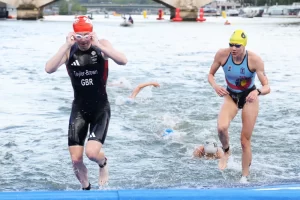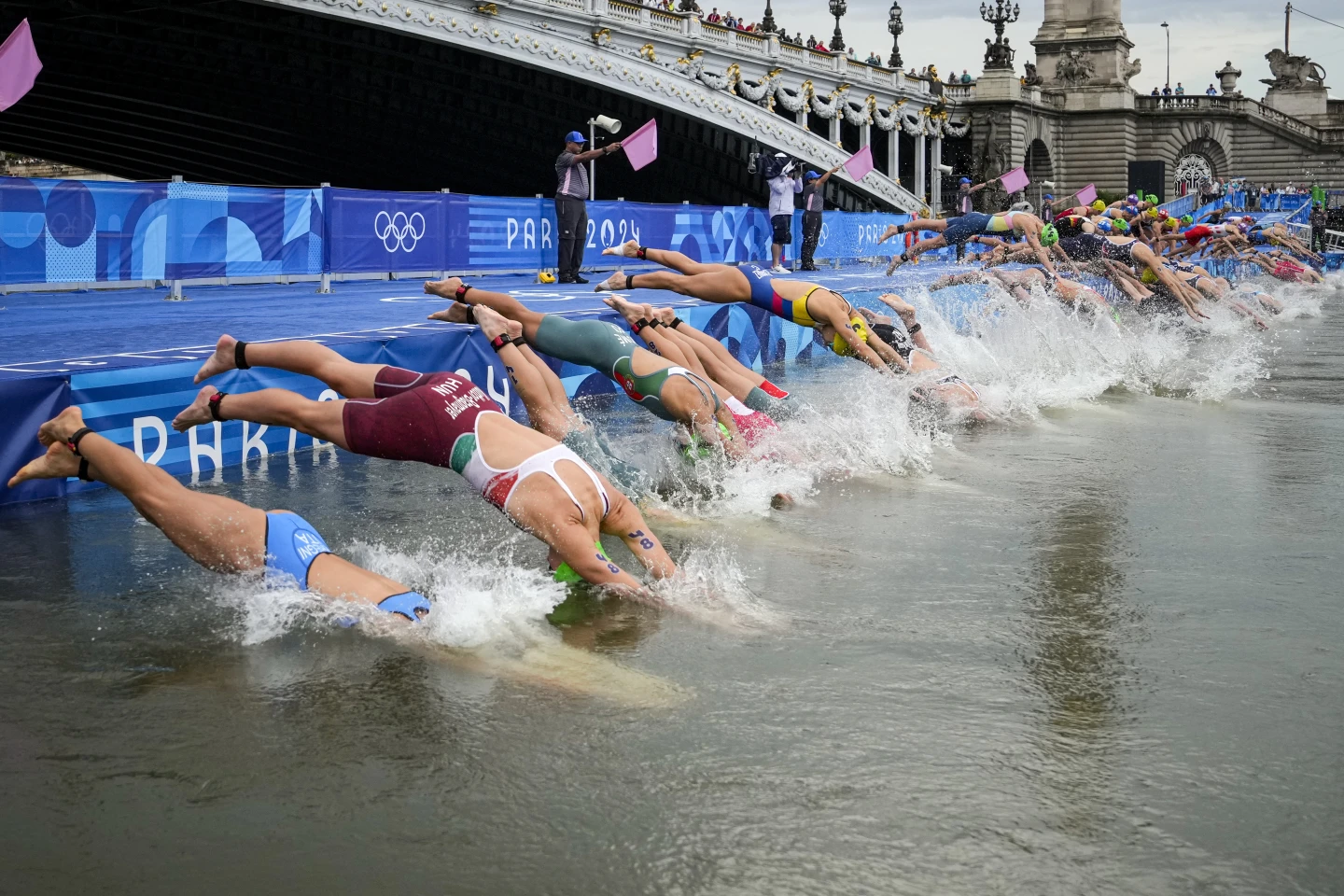Olympic triathletes took to the Seine River on Wednesday after organizers declared the water safe for swimming, following concerns about elevated bacteria levels from heavy rainfall.
The women began their race near the iconic Pont Alexandre III around 8 a.m., with rain easing just as they entered the water. Some athletes even dipped their goggles in the Seine before diving in, with the Eiffel Tower visible in the background. The men’s race followed nearly three hours later.
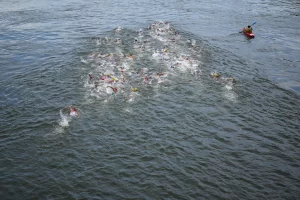
The decision to proceed with the swim was significant for the city, the Olympic organizers, and the athletes. Authorities had invested approximately €1.4 billion ($1.5 billion) in infrastructure improvements to clean up the historically polluted Seine, maintaining that the swimming events could be safely held in the river.
After several days of uncertainty due to rain on Friday and Saturday, organizers announced on Wednesday that recent water tests met quality standards. Chief Paris Games organizer Tony Estanguet expressed his delight, stating, “It’s magic,” and emphasizing the importance of this achievement for Parisians.
Enthusiastic Spectators and Challenging Conditions
As the triathletes swam, they stayed close to the riverbanks lined with boats, while spectators cheered from stands and bridges. After completing a 1.5-kilometer (1-mile) swim, the athletes transitioned to the biking portion of the race, which took them through the streets of Paris, including the famous Champs-Élysées. The women’s event saw several crashes due to wet conditions, but the weather improved for the men’s race.
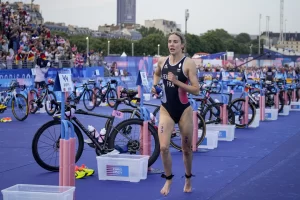
Cassandre Beaugrand of France won gold in the women’s event, followed by Julie Derron of Switzerland and Beth Potter of Britain, who took silver and bronze, respectively. In the men’s race, Alex Yee of Britain claimed gold, with Hayden Wilde of New Zealand winning silver and Léo Bergère of France earning bronze.
Mayor’s Support and Athlete Confidence
Paris Mayor Anne Hidalgo, who had previously swum in the Seine to demonstrate its safety, congratulated Beaugrand on her historic win. Beaugrand expressed confidence in the water quality, recalling that previous swims had not resulted in illness.

The triathletes had participated in a test event in the Seine last August, and despite the recent water quality issues, they remained optimistic about the conditions. Elevated bacteria levels had led to the postponement of the men’s race, originally scheduled for Tuesday, but organizers continued to express confidence in the swim’s safety.
Daily tests monitored E. coli levels in the river, with guidelines indicating that levels above 900 colony-forming units per 100 milliliters are unsafe. Organizers had taken samples shortly before the races, and results showed levels between 488 and 770, which were deemed acceptable for the competition.
Future Plans for Marathon Swimming
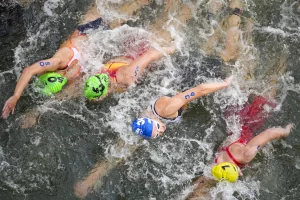
Looking ahead, the marathon swimming events scheduled for August 8 and 9 may be relocated to the Vaires-sur-Marne Nautical Stadium if necessary. Efforts to improve the Seine’s water quality included constructing a large basin to manage excess rainwater and upgrading wastewater treatment facilities.
Overall, the successful swim in the Seine marks a significant milestone for the Paris 2024 Olympics, as the city aims to restore the river for public enjoyment after over a century of restrictions on swimming due to pollution.
